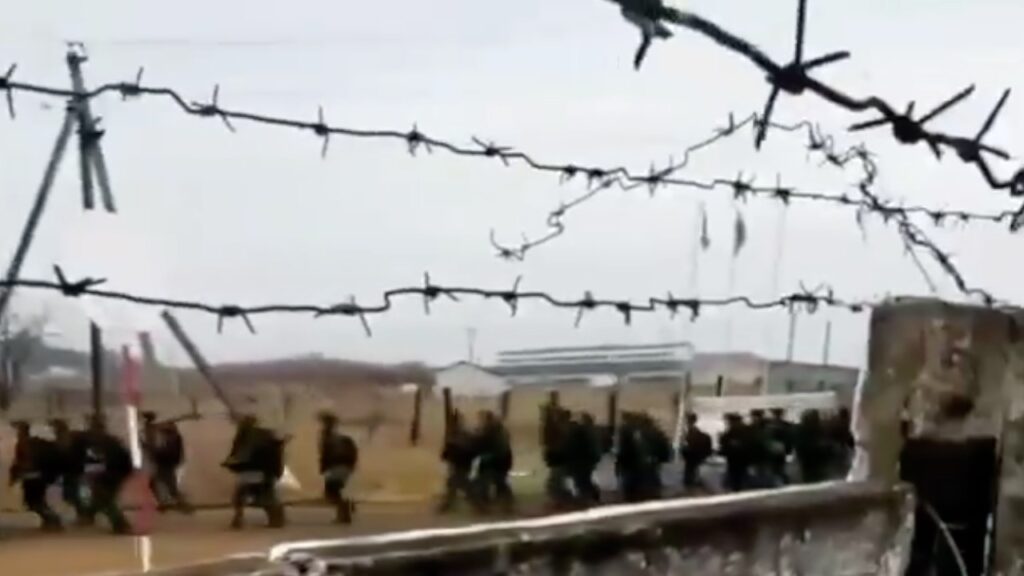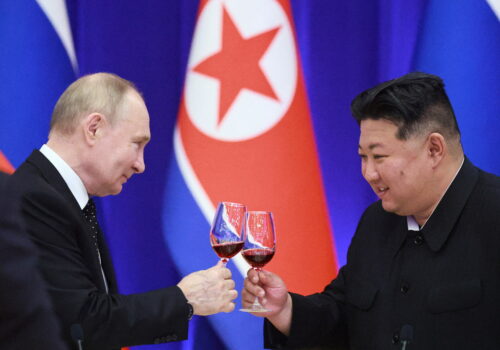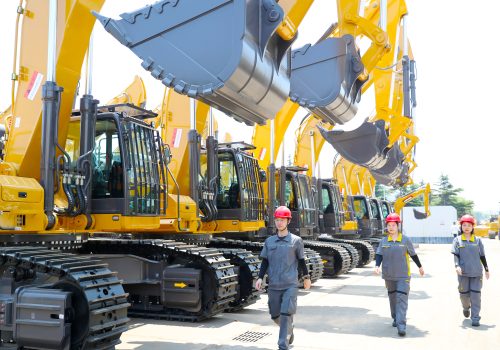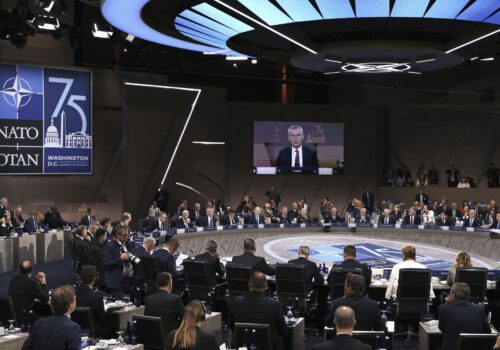GET UP TO SPEED
They’re already there. On Wednesday, US Secretary of Defense Lloyd Austin confirmed that North Korean troops are in Russia, backing up earlier reports from South Korean intelligence. This news came as Ukrainian intelligence officials warned that thousands of North Korean soldiers will soon be deployed to Kursk, near Russian territory that Ukrainian forces captured in August. What do North Korean soldiers and weapons mean for Russia’s ongoing war in Ukraine? What does North Korea get in return? And how does China view all this? Atlantic Council experts explain below.
TODAY’S EXPERT REACTION BROUGHT TO YOU BY
- John. E. Herbst (@JohnEdHerbst): Senior director of the Atlantic Council’s Eurasia Center and former US ambassador to Ukraine
- Markus Garlauskas (@Mister_G_2): Director of the Scowcroft Center’s Indo-Pacific Security Initiative and former US national intelligence officer for North Korea
- Shirley Martey Hargis (@ShirleyMHargis): Nonresident fellow at the Global China Hub and Digital Forensic Research Lab
Moscow’s mission
- “Russia has always had good, if complicated, relations with North Korea,” John says. As Russia’s offensive in Ukraine has faltered and as Russian forces have suffered an extraordinarily high number of casualties, the Kremlin has “come to rely more on North Korea,” starting with ammunition and now extending to manpower.
- Where are the North Korean troops headed? Russian President Vladimir Putin “has manpower needs both in Ukraine and Kursk,” John tells us. Putin may claim that those troops are only helping protect Russian territory, which would be “outlandish,” John says, because Ukrainian troops are only in Kursk because of Russia’s own aggression in Ukraine.
- One should not downplay the importance of North Korean weapons and troops to Russia, says Markus, “but such contributions alone are unlikely to be decisive in changing the dynamics on the battlefield of what has become a protracted war enabled by China.” The gambit could even backfire on Russia, he adds, as it “could trigger increased South Korean support to Ukraine that could quickly counterbalance what North Korea provides.”
Pyongyang’s play
- Pyongyang likely gets something in return, Markus notes, explaining that “the resources, military technology, and capabilities Russia may provide to North Korea in exchange for its support could fundamentally reshape the security situation on the Korean Peninsula and in the broader Indo-Pacific.”
- Depending on what Moscow sends to Pyongyang in exchange for its help, North Korean leader Kim Jong Un could reach “a tipping point in his escalation calculus that leads to a military crisis or armed conflict on the peninsula,” Markus argues. Such a conflict, especially in light of “crumbling deterrence” on the peninsula, could pull in China and the United States. This, Markus adds, “would indirectly influence the war in Ukraine far more than what North Korean troops would bring to the fight itself.”
Beijing’s big picture
- China “is never distant from relations between Russia and North Korea,” says Shirley. While Beijing and Moscow present a “no limits” partnership, in practice “this partnership is more about strategic convenience than genuine camaraderie, with China holding significant leverage over Russia, often treating it as a little brother.”
- “Russia’s growing ties with North Korea are a hedge against China’s dominance,” Shirley explains.
- North Korea’s actions, says Shirley, “highlight its willingness to assert its independence and leverage its position between the two larger powers.” However, she adds, “this also places North Korea in a delicate position, as it must navigate its reliance on China for economic support while maintaining its strategic partnership with Russia.”
- “China’s support to Russia’s war effort is still far, far more important in scope and scale than North Korea’s, even if Pyongyang has been more flagrant and risk-acceptant than Beijing,” says Markus. The “bigger picture” is the growing cooperation among China, Russia, North Korea, and Iran, which poses “a whole new challenge for the United States and its allies around the globe.”
Further reading
Tue, Oct 22, 2024
Axis of Autocrats: North Korea’s escalating role in Russia’s Ukraine War
UkraineAlert By
North Korean troops are reportedly set to join the Russian invasion of Ukraine. If confirmed, this would represent the latest escalation in North Korea's support for Vladimir Putin's imperial aggression, writes Olena Tregub.
Wed, Nov 15, 2023
China’s support for Russia has been hindering Ukraine’s counteroffensive
New Atlanticist By Markus Garlauskas, Joseph Webster, Emma C. Verges
A deep dive into trade data reveals how materials imported from China are vital for Russia’s ability to sustain its continued stubborn efforts to hold onto Ukrainian territory.
Mon, Jul 15, 2024
This might be NATO’s greatest struggle yet—and it’s global
Inflection Points By Frederick Kempe
At its Washington summit, NATO acknowledged how China and Russia are working together to revise the global order. But what will the Alliance do about it?
Image: Footage circulated online on Oct 18, 2024 shows North Korean troops training in Russia. Open source intelligence (OSINT) researchers have located that this was filmed at a training range in Sergeyevka, Primorsky Krai, Russia. In the video, a Russian soldier in uniform with an insignia on his shoulder commented on the troops marching before him and called them foreign reinforcements, claiming that millions of them would come to reinforce the troops, according to Kyiv Post. The matching insignia on the soldier's shoulder and the gate indicate that the video was likely taken at a Russian military facility. EYEPRESS via Reuters Connect



